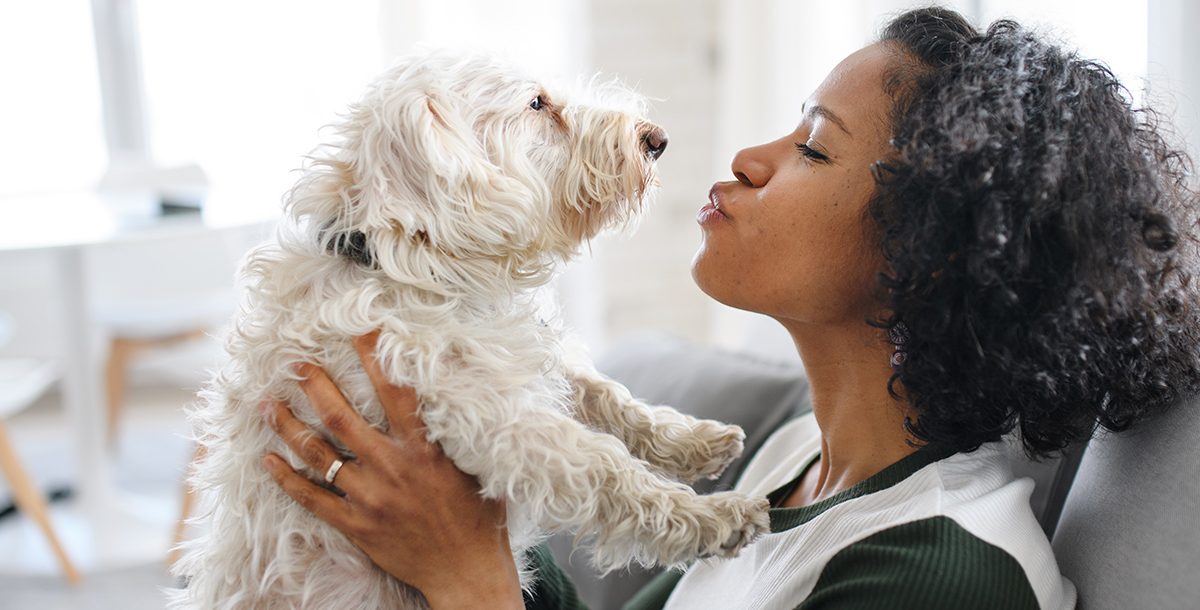Has your dog been acting more lethargic recently? Are they ignoring their food, with a runny nose and an obnoxiously loud cough? Your good boy or girl could have kennel cough.
While kennel cough in dogs is most common, other species can come down with the illness. But can humans get kennel cough from their pets?
What is kennel cough?
Kennel cough is referred to as canine infectious tracheobronchitis. It is a highly contagious respiratory infection most commonly transmitted in places where multiple dogs are close – think dog kennels, dog parks and daycare facilities.
While it’s uncommon for dogs to transmit kennel cough to humans, it’s worth keeping in mind that any dog showing symptoms may be infected and can spread the disease to your dog through direct or close contact. Vaccinating your dog is almost certainly a good idea if they spend time in communal areas with other dogs or drink from shared water bowls.
If you’re worried your dog may have transferred kennel cough to you, discuss your concerns with a primary care doctor or nurse practitioner.
Symptoms of kennel cough in dogs
A dog with kennel cough will probably exhibit at least a few of the below symptoms:
- Repetitive, aggressive cough
- Sneezing
- Eye mucus (“eye boogers”)
- Runny nose
- Potentially lower appetite and energy levels
For humans, it’s a bit different.
Signs of kennel cough in humans
In general, unless you have a pre-existing medical condition, it’s improbable that you will contract kennel cough.
However, if you do, you’re at a much higher risk of developing different lung conditions, like pneumonia or an upper respiratory tract infection. General symptoms to look out for include:
- Sore, inflamed throat
- Dry, persistent cough
- Difficulty breathing and swallowing
This is yet another reason why keeping your immune system strong can benefit the longevity and quality of your life.
What does kennel cough sound like?
While we know what kennel cough sounds like in humans, it’s a bit more varied for dogs.
In dogs
Some people describe their dog’s cough as something similar to a nasally, guttural groan. Others describe it more akin to a loud “honk” a goose would make.
Regardless, if your dog is making a repetitive hacking cough or honk, taking them to the vet should be a priority.
In humans
On the other hand, humans tend to have coughs that sound similar to whooping cough, where the cough comes from the back of the throat. If you can picture what a cat coughing up a hairball sounds like, that should give you a pretty good idea of whooping cough.
In fact, the most typical bacteria that produces kennel cough is Bordetella bronchiseptica, which is actually very similar to the bacteria that leads to whooping cough.
Is kennel cough deadly?
It’s pretty rare for a severe case of kennel cough to develop. If you believe that your pup may have it, then allowing them to have some rest away from other animals, ensuring they are adequately hydrated and have good air quality should allow them ample recovery.
On the other hand, humans should likely see their doctor if their symptoms don’t go away after a week or two. Since humans who develop prolonged symptoms likely have a pre-existing medical condition when they get kennel cough, things could get a bit dicey if you don’t check it out. Luckily, there are very few documented cases of humans dying from the disease, so there is no need to fret.
How is kennel cough treated?
Kennel cough treatment will vary on a dog-by-dog (or person-by-person) basis due to various factors like weight, age and pre-existing conditions.
Kennel cough treatment for dogs
A good week or two of rest for most dogs should eliminate most cases of mild kennel cough; anything more serious may require a visit to the veterinarian. They will typically recommend cough medicine or antibiotics to help your pup out.
You can help by using a harness to walk your dog instead of a collar – the collar may aggravate their throat and lead to more discomfort.
At a minimum, you should prioritize having your dog vaccinated against Bordetella – this is the most common kennel cough vaccine and will significantly reduce the likelihood of even needing treatment.
Treatment for humans
Similar to dogs, humans may need a few weeks of rest for mild cases of kennel cough to allow their immune system to deal with the disease.
In some cases, like where there is a pre-existing condition, doctors may recommend antibiotics (link to Pete’s article on antibiotics) or cough suppressants. Regardless, reaching out to your provider is a good idea to ensure your well-being.
Things to remember about kennel cough
Because kennel cough is contagious to humans, catching kennel cough from a dog is possible. However, the people most at risk are those with an underlying medical condition. Even then, it is still unlikely to develop symptoms.
With proper rest, most cases of kennel cough are easily treatable and most cases are easily preventable with the appropriate vaccination.





